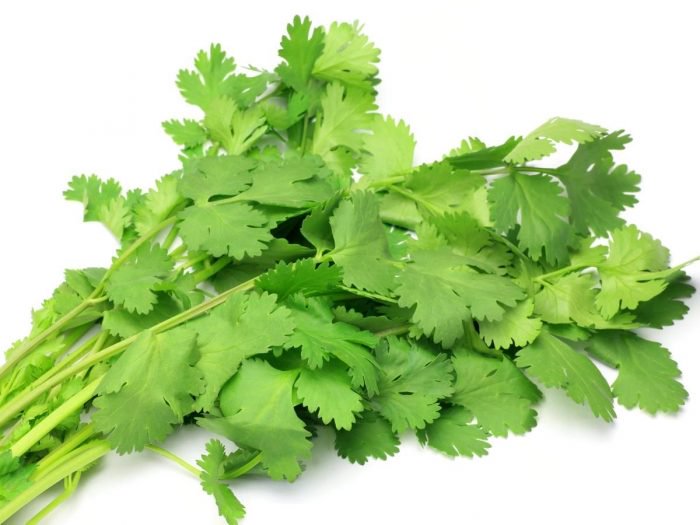he health benefits of coriander includ
The health benefits of coriander include its use in the treatment of skin inflammation, high cholesterol levels, diarrhea, mouth ulcers, anemia, indigestion, menstrual disorders, smallpox, conjunctivitis, skin disorders, and blood sugar disorders, while also benefiting eye care
What Is Coriander?
Coriander, commonly known as Dhaniya in the Indian Subcontinent and Cilantro in the America and some parts of Europe, is an herb that is extensively used around the world as a condiment, garnish, or decoration on culinary dishes. Its scientific name is Coriandrum sativum L. Its leaves and fruits have a recognizable and pleasant aroma and are commonly used raw or dried for culinary applications.
Coriander Nutrition Facts
Its uses in global food preparation are only the tip of the iceberg. Unbeknownst to many people, coriander is packed with potential health benefits that most people completely miss when they toss this garnish into the garbage after eating their meal. It has eleven components of essential oils, six types of acids (including ascorbic acid, better known as vitamin C), minerals and vitamins; each having a number of beneficial properties. A complete list is given below.
Health Benefits Of Coriander
Health benefits of coriander include:
Lowers Skin Inflammation
Cineole, one of the 11 components of the essential oils, and linoleic acid are both present in coriander, and they possess antirheumatic and antiarthritic properties. They help to reduce the swelling that is caused by these two conditions. For other swelling conditions, such as swelling due to kidney malfunction or anemia, it is also seen to be effective to some extent, because some of the components in coriander help induce urination and the release of excess water from the body. The reduction in skin inflammation leads to a reduction in discomfort, and an improvement in skin appearance.
Treats Skin Disorders
The disinfectant, detoxifying, antiseptic, antifungal and antioxidant properties of coriander are ideal for clearing up skin disorders such as eczema, dryness and fungal infections.
Lowers Cholesterol Levels
The acids present in coriander, like linoleic acid, oleic acid, palmitic acid, stearic acid and ascorbic acid (vitamin C) are very effective in reducing cholesterol levels in the blood. They also reduce the level of bad cholesterol (LDL) deposition along the inner walls of the arteries and veins, which can lead to serious cardiovascular issues like atherosclerosis, heart attacks, and strokes. More importantly, this herb helps to raise the levels of healthy cholesterol (HDL), which works as a preventative line of defense against a number of dangerous conditions.
Treats Diarrhea
The components of essential oils found in coriander such as borneol and linalool, aid in digestion, proper functioning of the liver and bonding of bowels, while also helping to reduce diarrhea. It is also helpful in curing diarrhea caused by the microbial and fungal action, since components like cineole, borneol, limonene, alpha-pinene & beta-phellandrene have antibacterial effects.
Coriander is also increasingly popular as a means of preventing nausea, vomiting, and stomach disorders. Its wealth of bioactive compounds means that new health benefits are always being discovered in this power-packed plant.
In addition to these health aspects of the stomach, fresh coriander leaves are excellent appetizers to get your bowels prepared for a large meal.
Regulates Blood Pressure
Consuming coriander has been shown to positively reduce blood pressure in many patients suffering from hypertension. It enhances the interaction of calcium ions and acetylcholine, a neurotransmitter in the peripheral and central nervous system, relaxes blood vessel tension; thereby reducing the chances of a number of cardiovascular conditions, including heart attacks and strokes.
Treats Mouth Ulcers
Citronellol, a component of essential oils in coriander, is an excellent antiseptic. Additionally, other components have antimicrobial and healing effects which keep wounds and ulcers in the mouth from worsening. They help speed up the healing process of ulcers and also prevent bad breath. Although not commonly used in mainstream products, coriander is often used as an antiseptic component of all-natural kinds of toothpaste. In fact, before the invention of toothpaste, people would chew on coriander seeds to reduce bad breath!